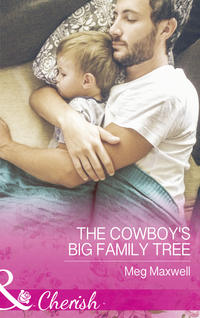
Полная версия
The Detective's 8 Lb, 10 Oz Surprise
Nick stared at her. “And you know this because?”
Because I know what it’s like to be in trouble. To be threatened. To feel trapped and cornered and have no one to talk to, nowhere to go. God, if Georgia had had a child—a baby—the past several months? She would have had no choice but to have sought a safe haven for the baby.
“I can imagine,” she said, aware of his dark eyes on her, assessing her.
“Is there a reason you’re here?” he asked. The baby began fussing and Nick took the bottle from his lips, setting it down on the reception desk.
Now was hardly the right time to tell Nick he was going to be a father. He had his hands full—literally.
“Yes, but perhaps I should come back a bit later? Or I could stay and help,” she said, her gaze on the squirming infant. Not that she knew more than he did about babies.
He stared at her, the expression stonier than before. “Should you be holding a baby in your condition?”
Her hand flew to her belly. She wasn’t sure he’d noticed. Then again, he was a detective. Of course he’d noticed. “I can handle him. Pregnant mothers have been balancing toddlers on their hips since time began.”
“I guess,” he said. “Oh, and congratulations.”
He was glaring at her, she realized.
Oh God. Because he thought the baby was someone else’s.
“Nick, I need to explain to you about the morning after—”
“I don’t need to hear it,” he said. “In fact, I’m pretty busy right now and would appreciate it if you left. I need to call Social Services.”
Social Services. Back in Houston, Georgia had an acquaintance who worked for Child Protective Services. She knew the good work they did, how devoted her friend was. And she also knew how babies and children could slip through the cracks. “Do you?” she asked. “Doesn’t the note say that she’s leaving the baby with you—for a week? That she isn’t abandoning him? That she can trust you? Sounds like someone you know. And she’s very specific in the note.”
As the baby fussed, Nick began pacing back and forth, trying to comfort the little guy. “Someone who didn’t sign her name. I have no idea whose baby this is. I can’t think of anyone who had a baby boy recently and named him Timothy—Timmy. Anyway, I can’t take responsibility for him—I have active cases.”
Georgia’s heart sank. She wanted the police to be superheroes. But they were flesh-and-blood men and women restricted by the law, by regulations. That she knew all too well.
“If you could hold him and get him to stop fussing while I make that call, I’d appreciate it,” Nick said.
“Of course,” she said, reaching out her arms.
He transferred the baby to her, and the sweet weight of him almost made her knees buckle. How heavenly he felt. And a bit scary. Would she know what to do?
The baby squirmed and cried a bit, so she gently rocked him, and he quirked his mouth, then settled down.
Huh. Maybe she could learn on the go. In the field. She could take care of this baby for Nick for the week.
He stood watching her, his phone against his ear. She listened to him report the baby being left on his desk, about the note. “The mother left the baby in my care, so that means I’m his temporary guardian, right?”
Georgia’s heart lifted. He wasn’t asking Social Services to take the baby and give him to foster care. He was following protocol, but planning to take responsibility for the infant.
“Yes, if she’s not back after a week I will call you back,” he said, then clicked off the phone. “Good God. I’ve got exactly a week to track down the baby’s mother or Social Services will take him into custody and arrange for foster placement if the mother doesn’t return for him by noon next Saturday. And depending on the circumstances of why the mother left the baby with me, the safe haven law won’t apply because even though the baby appears to be under sixty days old, he wasn’t left at a hospital, an EMS or a child-welfare agency.”
Georgia bit her lip. The baby could be taken away from his mother, who was only trying to protect him from someone—something. Her youngest sister, Clementine, had been a foster child, adopted by the Hurleys when she was eight years old. Georgia knew there were wonderful foster families—like her parents. But there were also bad ones. She couldn’t bear the thought of this baby in her arms being placed with strangers.
“How am I going to take care of a baby, do my job and find Timmy’s mother all at the same time?” Nick said, and Georgia realized he was more thinking out loud than asking a question.
“I’ll care for him for the week,” Georgia blurted out. “I’m back now. Home for good in Blue Gulch. And unemployed.” And without a cent to my name. Not that she planned to get into all that right now. “And I could use the on-the-job training,” she added, touching a hand to her stomach.
He was staring at her belly. “How far along are you?”
“I conceived in April. April twentieth to be exact.” The night you changed my life, made me believe in possibilities again, made me determined to find a way out. She held his gaze and saw the flicker of mistrust in his eyes when he understood what she was saying.
His lower lip dropped slightly. “And yet on April twenty-first, when your rich boyfriend showed up, you acted like we’d just run into each other outside your condo. How are you so sure when you conceived? Or that I’m the father?”
She owed him an explanation. She’d come here to tell him everything. And though the thought of rehashing it, reliving it for the telling made her feel sick to her stomach, she had to do it.
She could still remember the first time she’d seen Nick, her surprise that someone from Blue Gulch was standing on the porch of her condo in Houston, the immediate pull of attraction to him on all levels, the inability to look away from his face.
Oh, how the sight of him had comforted her. He was from home. He was the police. But she’d been too afraid to tell him anything—about why her sister Annabel had clearly felt the need to have a policeman check up on her. Why Georgia hadn’t come home to Blue Gulch when her gram fell ill and Hurley’s Homestyle Kitchen was failing. Why the “fancy city businesswoman” had let down her family and stayed put in Houston. Why she hadn’t simply sent home a check to pull Hurley’s from the brink of bankruptcy.
She’d invited Nick in and they’d talked about Blue Gulch. They’d talked a little about their families—but Georgia realized she’d done most of the talking, needing to feel connected to the Hurleys even if she couldn’t be with them. And a glass of wine had led to another, and a kiss had led to Georgia allowing herself the evening with this man. Knowing there wouldn’t be a next day or a next time. She’d given herself to the fantasy of it, of him, of what her life might be like if only—
She pushed the thought away. She wouldn’t, couldn’t think of the past anymore. It was over, finally over. She was safe. She was free. And she was finally home. She’d bring it up only to explain herself to Nick and her grandmother and her sisters. Then she’d lock it up tight. She was going to be a mother and had to focus on that. Not on mistakes, on regrets, on what had been out of her control.
Easier said than done, but Georgia was going to try.
“I’m sure,” she said. “I’m pregnant with your child, Nick. Listen, I—”
“I need to get some air,” he interrupted, taking the baby back from her.
She nodded. He’d been streamrolled twice in the same half hour.
He closed his eyes for a moment, then started pacing, the baby seeming to like the quick movements. “I need to get some things for Timmy. I’ll be taking the rest of the day off.”
“Did you hear what I said?” she whispered.
“I heard you. I’ll be in touch.”
Dismissed, she thought.
She watched him settle Timothy into the baby carrier, taking a frustrated few moments to figure out the five-point harness straps. Then he picked up the carrier and walked out of the station and down the steps without looking back.
Chapter Three
Timmy was fast asleep in the little bassinet Nick had bought at Baby Center. Nick watched the baby’s chest rise and fall, rise and fall, and then he tiptoed out of his bedroom, keeping the door just ajar. Timmy had been sleeping for a good forty-five minutes now. Nick had looked in on him eleven times. Still breathing: check.
There at all and not a figment of his imagination or some crazy dream: check.
Keeping him too occupied to fully process that Georgia was pregnant with his child: check.
The moment he stepped back into the living room, the uneasy feeling hit him in the chest, in his throat, in his head. Again. There was a baby in his bedroom, a tiny human he was responsible for. Every time he sat down and tried to focus on how to go about finding Timmy’s mother, he would hear a cry or a sound and leap up like a lunatic and rush into the bedroom and find Timmy exactly as he’d been four minutes ago and four minutes before that: sleeping peacefully.
Everything inside him was on red alert for the baby to start crying or fussing. According to the salesclerk at Baby Center, if Timmy cried, Nick should eye or feel the diaper. Check for diaper rash. Calculate last feeding time and decide if the baby is hungry. If the baby is fed, changed, rash-free and still fussing, pick him up for a burp. If he’s still fussy, cradle him upright against you and hum softly.
Nick wasn’t a hummer. He did not hum.
After he’d left the station, left Georgia just standing there like a jerk, he had buckled Timmy in the backseat of his car, driven over to the Blue Gulch Clinic and had Timmy checked over. Perfectly healthy and deemed to be five weeks old. Since Nick wasn’t the baby’s legal guardian, he couldn’t authorize a DNA sample. He’d been hoping he could in order to check that database to possibly find a biological match between the baby and someone he’d arrested—even just as a start. But he’d have to dig through his records and try to figure out some connection between a recently pregnant woman and a case he’d worked. He’d do some investigating, find out someone had a baby five weeks ago named Timothy, and voilà.
Between now and voilà, he had a baby to take care of. He’d barely made it through the past few hours. How would he get through an entire seven days?
I’ll take care of him for the week. I could use the on-the-job training.
He really was almost grateful that he had a very immediate problem on his hands—finding out who Timmy’s mother was—so that he couldn’t focus on Georgia and her bombshell. Or her job request.
After the clinic he’d driven over to the Baby Center two towns over and asked that helpful clerk for the essentials. A few hundred dollars later, Nick had a few footed onesies, burp cloths, a couple of extra blankets, a big pack of diapers, two huge containers of baby wipes, a baby monitor, a baby swing and a tiny lullaby player that hooked over the side of the basinet. When he found Timmy’s mother, he’d let her keep all the stuff if she needed it, or donate it if she didn’t. And he would find her—well before the seven-day deadline. He had to reunite mother and child, for both their own good. And for his.
He sat back down at his dining room table with five boxes of case files, representing the past two years as a detective on the Blue Gulch police force, in front of him. Chief McTiernan was way behind the times in shifting to digital records. So somewhere in these files—police reports, notes and documents from various agencies—was the key to Timmy’s mother. Nick had made a good impression on someone, someone who’d entrusted him with a five-week-old baby. Someone related to a suspect? A perp? A witness? Someone who was a suspect, a perp, a witness?
He finished reading through his last case file—solved a few days ago in less than two hours, almost a record. Bentley, the miniature greyhound that Harriet Culver had adopted from the animal shelter last week, had been dognapped from where she’d left him tied to a pole near Hurley’s Homestyle Kitchen while she ran in to pick up a to-go order. An hour later, his investigation led him to the dugout at the middle school baseball field, where eleven-year-old Jason Pullman was hiding with Bentley and teaching him how to play fetch. Apparently, his parents wouldn’t let him have a dog, and the greyhound had been sitting there all alone, so... Harriet had settled on the tearful, remorseful Jason doing two weeks of community service by walking Bentley every day after school, if he wanted. He wanted. Case closed.
Nick liked cases like that. Cases with happy endings. Cases without bodies. Without hospital records.
Okay, so someone on the Culver case liked how he’d handled the dognapping and thought he’d be a good babysitter for a week? He looked through the list of witnesses. He’d spoken to the owners of businesses near where Harriet had tied up Bentley. Clyde Heff of Clyde’s Burgertopia. Sau Lan of Sau Lan’s Noodle Shop. The manager of the general store. The yoga studio. Then he’d forced himself into Hurley’s Homestyle Kitchen to talk to Essie Hurley.
If only he’d spoken to Essie first. She’d been in the kitchen making biscuits and had actually seen the boy take the dog and walk off, but hadn’t thought anything of it until Nick came by. He’d been avoiding Hurley’s these past few months. Even when he’d craved baby back ribs for dinner or those flaky biscuits slathered with apple butter with his three o’clock coffee break. Just the sight of the peachy-pink-colored Victorian reminded him of Georgia. And he’d tried like hell to put Georgia Hurley out of his mind. But because he could have solved the dognapping case in five minutes had he only gone into Hurley’s first, he’d decided just this morning to end his boycott of the place and had ordered from there today. His plan was to connect barbecue burgers and Creole-sauce-slathered catfish po’boys with his thankful stomach instead of a particular Hurley with silky golden-brown hair and big green eyes. And a slick, rich boyfriend.
Oh, him? Just an acquaintance I ran into. Ready, darling?
A cold ache seeped into his bones, despite the eighty-five-degree temperature outside.
Nick was “oh, him.” Just an acquaintance. After a woman he barely knew had managed to accomplish something no other woman had: made him feel something more than lust, made him open up about himself, which he rarely did. About the childhood he never talked about. What his mother had endured. His mother passing two years ago and Nick moving back home to Blue Gulch to take care of Avery, sixteen and a grieving mess.
For Avery, he’d lived in his childhood home for six months before he couldn’t take another second of it, of remembering the constant sound of his rageful father slamming the front door, shouting, his mother fruitlessly trying to calm him down with a ready beer and a plate of meat and potatoes, the kids out of sight, out of earshot, lest they upset him, lest he start using his fists against his wife and the son who’d try to intervene.
Avery had been furious about having to move to a new home in Blue Gulch, not wanting to leave her childhood home, but she was ten years younger than Nick and remembered very little of their father, who’d died when Avery was just five. But Nick had spent fifteen years being afraid of his father, Vincent Slater, career officer on the Blue Gulch police force. The sight of his gun in his holster used to scare Nick to death, that his father would snap and shoot his mother.
When Nick was fifteen, Vincent Slater had been killed in the line of duty, chasing a burglary suspect who turned and fatally shot him. His partner had fired back at the perp and killed him.
Nick could remember his surprise, that you could grieve so hard for someone you thought you hated, someone you’d wished was dead a million times before.
He’d decided to become a cop to try to understand his father better, but Nick was nothing like his dad and he’d understood nothing. Over the years, mostly in Houston, where he’d served for five years until he moved back home to care for Avery, he’d met some hotheaded cops like his dad, but it didn’t seem to be the job that had turned them. They’d always been hotheads; it was just their personality. He’d once asked his kind, gentle mother why she’d married Vincent Slater, why she hadn’t packed up him and Avery and left, and she’d said sometimes the opposite of what you are draws you, you admire it, and then things turn bad, things turn ugly and you feel trapped for a million different reasons you can and can’t explain. I’m so sorry I didn’t do more to protect you was one of the last things his mother said to him.
Nick’s stomach twisted. He was never getting married. He was never having kids.
He stood up, his chest tight.
I’m pregnant with your baby, Nick.
Well, unless Georgia had never slept with the Suit in the thousand-dollar shoes, Nick couldn’t understand how she could be so sure.
He wasn’t going to be a father until she explained that little mystery. Not that he wanted to hear one damned word from her about it. He got it. Clear as day. Her actions had told him everything he needed to know about Georgia Hurley.
Nick Slater, a father. He closed his eyes and almost laughed—that was how crazy the idea was. Yes, Nick could learn how to change a diaper and remember to point down tiny male anatomy so that he didn’t get sprayed in the chest—again. But being a father was about a hell of a lot more than just stepping up, which Nick would do if he really was the father of Georgia’s baby.
As he was doing with Timmy. Stepping up. Taking responsibility, despite being 1,000 percent sure that he wasn’t Timmy’s father. He’d had a long, self-imposed dry spell in the women department until he met Georgia Hurley. And another since her. Whoever Timmy’s mother was, she definitely knew Nicholas Slater was not her son’s father. She’d chosen him as a safe keeper for a different reason.
The problem here, Nick realized, was that he didn’t want to take care of Timmy. He would, but he didn’t want to. First of all, he wouldn’t be any good at it. Two, something about that helpless, defenseless, innocent baby had his protective instincts on red alert, giving him that unsettled, uneasy, on-guard knot in his chest and stomach. He’d lived with that feeling his first fifteen years of life and the past two, when he and his kid sister would be at each other’s throats and he was so damned afraid he’d mess up and Avery would decide to drop out of high school.
So yes, he could take care of Timmy. But he did need to hire a full-time caregiver. That way, he could track down Timmy’s mother, find out what her situation was, do what he could to help and reunite a mother and child. The note she’d left made him think she wasn’t a nut job or a rage-aholic or an irresponsible, immature shirker.
These days, though, Nick would give his gut, which had always served him well, a D-. Maybe an F.
Someone knocked on the door. He glanced at his watch. Four o’clock. Timmy’s mother? Three hours separated from her baby had been enough, maybe. He rushed to the door and pulled it open.
Oh hell. It was Georgia Hurley. She had a big basket in her arms.
“I brought some things for Timmy,” she said, gesturing to the basket.
She still wore the pale blue sundress that draped over her curves, her hair now up in a topknot. She was too damned pretty, too damned sexy, even at four months pregnant.
He took it from her, eyeing the pack of diapers and various ointments and burp cloths. “Thanks.”
“Can I come in?” she asked.
He stepped aside to let her enter. “Of course.”
“Nice place,” she said, glancing around.
“I let my sister pick out a lot of the furniture,” he explained as he led the way into the living room. “Otherwise those couches would be black leather and not ‘eggplant twill,’ whatever that is.” Letting Avery do the decorating had saved their relationship back then; she’d been less angry about having to move, about not taking most of their furniture. The worn old upholstered recliner his father had fallen asleep drunk in most nights? Not taking it. He had brought over some of his mother’s favorite furnishings, but anything that reminded him of his father had gone into storage for Avery to decide what to do with when she was ready to furnish her own place.
She smiled. “Did she leave the cat?”
He was surprised she remembered that. “She sure did. Mr. Whiskers hates me. He pretty much sleeps all day in Avery’s room and comes out twice a day for breakfast and dinner. Sometimes I forget he’s even here.”
“I had a stalker,” Georgia said suddenly, turning away and facing the window that looked out to the side yard. “That morning, the man...that was him.”
Nick froze, his blood cold in his veins. He stared at her back, noting how tense her shoulders were. “What? If he was a stalker, then why—”
Georgia turned and sat down on the love seat, taking a small throw pillow embroidered with an owl and clutching it against her stomach. “About eight months ago, my boss was replaced by a man named James Galvestan. He was so impressive. I was doing well at the company, on my way to being promoted to vice president of new business development, and he was my strongest supporter, my champion, crediting me even though I only developed his ideas further. ‘You did the work,’ he’d say. ‘You get the credit.’ He was so handsome, so gallant. I fell in love fast.” She closed her eyes and shook her head.
“And then,” Nick prompted gently, everything inside him twisting at where this was going.
She leaned her head back, letting out a hard breath. “And then he began making it clear he was attracted to me. A lingering look, a hand on my shoulder, moving down my back. I was so flattered, but nervous about dating not only a colleague but my boss. But within weeks, I began noticing how controlling he was. I had lunch with a male colleague with whom I was working on a project—the next day, that man had been transferred. I’d find James sitting in his car outside my house, and when I’d go out to ask him why, he’d say he just wanted to make sure I was safe.”
“Or alone,” Nick said.
“Exactly. It’s as if he was compelled to sit outside in his car and watch, check up on me. Like being with me wasn’t the point. Just making sure no one else was. That’s when I realized I had to put an end to our romantic relationship. And he got even scarier. He told me we were meant to be, that I was his dream woman, and when we were married, I’d make him the happiest man on earth. The word marriage scared me to death. I told him we were through. And he grabbed me and said we weren’t through until he said we were through, that I belonged to him. I quit my job to get away from him—that’s how freaked out he made me.”
“Please tell me you went to the police for a restraining order,” Nick said.
“I did. It made him even angrier. He’d come to my condo and by the time the police came, he’d be gone and I’d be unable to prove he was there. The police said that until he physically hurt me in some way, there was really nothing they could do.”
Nick knew all about that.
She stood up and walked over to the window, still clutching the pillow. “And then one day I came home and found him in my bedroom, going through my things. He had old address books, letters, keepsakes. He started saying things like ‘How nice that your grandmother owns a restaurant in a small town. One phone call and Granny will have an accident, poor thing. And your sisters. I know how much you care about them. Small towns just aren’t as safe as they used to be. You never know who’s creeping around waiting to attack a pretty redhead like Annabel. Or a dark-haired former foster kid named Clementine.’” Her voice broke and she turned around, her head dropping.
Nick wanted to rush over to her and pull to her him, comfort her, but he knew from experience that when people were telling their stories—whether victims or witnesses or criminals—you had to let them finish, not rush them, not lead them, not hug them. It took everything in Nick to stay seated, to let her finish when she was ready.






